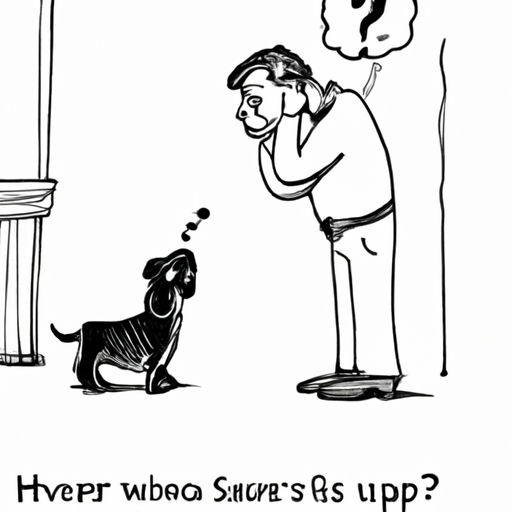It’s a sight that might bring a smile to your face – your dog hiccuping. It’s as cute and endearing as it is strange. But what does it mean when dogs have hiccups? Is it a cause for concern or just another quirky canine behavior that we should learn to love? Let’s delve into this topic and get to the bottom of this intriguing dog behavior.
- Table of Contents
- Understanding Dog Hiccups
- Causes of Dog Hiccups
- Are Dog Hiccups a Reason to Worry?
- What Can You Do?
-
Frequently Asked Questions
-
Key Takeaways
- Dogs get hiccups just like humans do.
- Hiccups in dogs are usually harmless and often stop on their own.
- Persistent hiccups may be a sign of a more serious health issue and should prompt a visit to the vet.
Understanding Dog Hiccups
Just like us humans, dogs also get hiccups. This is a result of a spasmodic involuntary contraction of the diaphragm that happens quickly and repeatedly. It’s often linked to the dog’s eating or drinking habits and is typically not a cause for concern. If you’ve ever wondered about the science behind dog hiccups, you can read more about it here.
Causes of Dog Hiccups
There are several reasons why your furry friend might get the hiccups. Here are some common causes:
- Eating or drinking too quickly – When a dog gobbles up its food or water, it can swallow air along with it. This can lead to a distended stomach, eventually causing hiccups.
- Excitement or stress – Dogs can also get hiccups when they’re overly excited or stressed. This is because emotions can trigger a change in their breathing pattern, leading to hiccups.
- Cold weather – Sudden changes in temperature can also cause hiccups in dogs. This is because cold air can stimulate the nerves that control the diaphragm.
Are Dog Hiccups a Reason to Worry?
Most of the time, dog hiccups are harmless and will stop on their own. However, if your dog’s hiccups persist for an extended period or are accompanied by other symptoms such as coughing, restlessness, or difficulty breathing, it’s essential to consult with your veterinarian immediately. Persistent hiccups could be a sign of respiratory issues, gastrointestinal diseases, or even a symptom of heatstroke. Check out this guide from One Top Dog for more information on dog health.
What Can You Do?
If your dog has the occasional hiccup, there’s no need to panic. Here are some simple things you can do to help your dog:
- Slow down their eating and drinking: Consider using a slow feeder bowl or spreading their food out on a flat surface to slow them down. This can help reduce the chance of swallowing air and getting hiccups.
- Keep them calm: Avoid situations that could overexcite your dog. If they do get overly excited or stressed, try to calm them down and normalize their breathing.
- Keep them warm: If the weather is cold, ensure your dog is adequately covered to prevent hiccups.
For more tips on taking care of your dog, check out these articles on dog grooming, dog training, and dog nutrition from One Top Dog.
Frequently Asked Questions
-
Are hiccups normal in dogs?
Yes, occasional hiccups are perfectly normal in dogs and are usually not a cause for concern. -
How long do dog hiccups last?
Most hiccups in dogs will last only a few minutes. If they persist for more than a couple of hours, it’s best to consult with a vet. -
Can I give my dog something to stop the hiccups?
It’s generally safe to give your dog a small amount of honey or syrup to soothe their throat and potentially stop the hiccups. However, it’s always best to consult with a vet before trying any home remedies.
In conclusion, while it’s adorable to watch your dog hiccuping, it’s essential to know when it’s normal and when it might be time to seek medical attention. Remember, you are the best judge of your pet’s health. If something doesn’t seem right, it’s always better to consult with a veterinarian.



